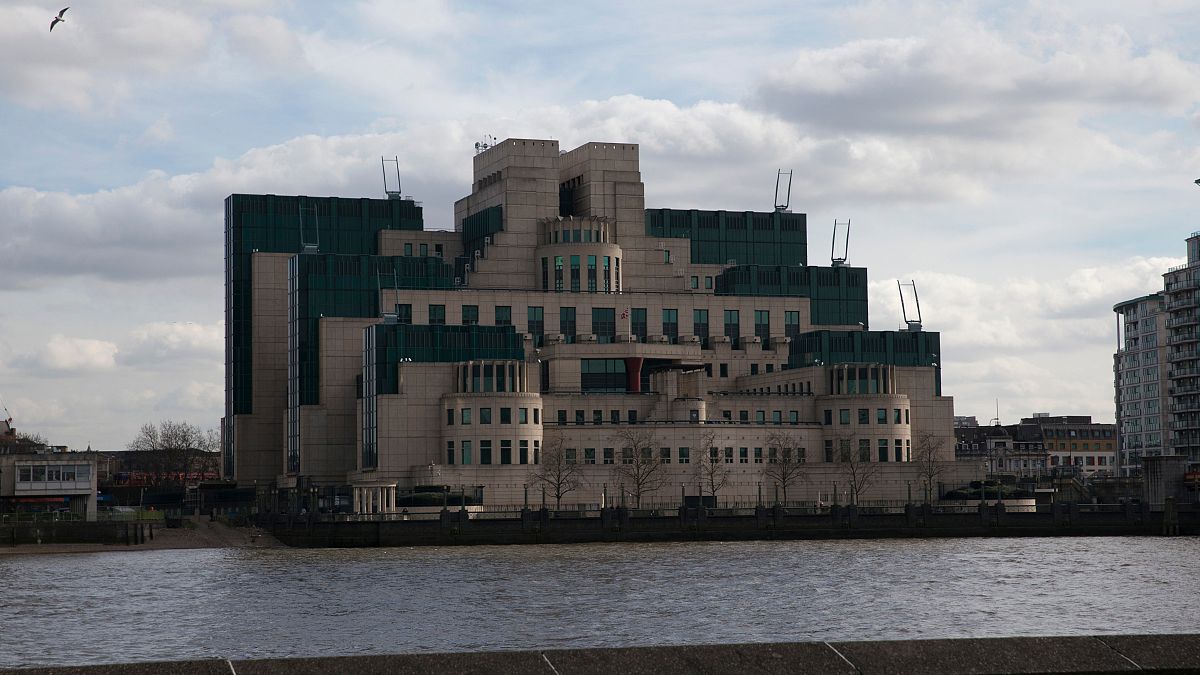Hybrid attacks on Ukraine’s Western allies appear to be proliferating, and several high-profile incidents have been blamed on the Kremlin.
The head of Britain’s foreign intelligence service, MI6, has said Russia is conducting a “staggeringly reckless” sabotage campaign against Ukraine’s Western allies — and that his agents are working to stop it from spiralling out of control.
In a speech to diplomats and intelligence officials in France, Richard Moore said his agency and its French counterpart, the DGSE, are cooperating to prevent a dangerous escalation, explaining that they are “calibrating the risk and informing the decisions of our respective governments” in response to what he described as a “mix of bluster and aggression”.
“We have recently uncovered a staggeringly reckless campaign of Russian sabotage in Europe, even as Putin and his acolytes resort to nuclear sabre-rattling, to sow fear about the consequences of aiding Ukraine,” Moore told his audience.
“Such activity and rhetoric is dangerous and beyond irresponsible.”
Moore was speaking alongside DGSE chief Nicolas Lerner at an event marking 120 years of the Entente Cordiale, a pact between Britain and France that bound the age-old rivals together as military and diplomatic allies.
The hybrid threat to Europe
Western security officials suspect that Russian intelligence is trying to destabilise Ukraine’s allies with an array of disruptive tactics, among them disinformation, sabotage and arson.
Moscow has been linked by Western governments to a number of nefarious plans and attacks, including an alleged plot to burn down Ukrainian-owned businesses in London, and to incendiary devices found in packages on cargo planes. In July, one caught fire at a courier hub in Germany, while another ignited in an English warehouse.
Lerner agreed with Moore that “the collective security of the whole of Europe is at stake” in Ukraine.
He said the UK’s experience tackling Russia in the wake of attacks such as the 2018 Salisbury Novichok poisoning was invaluable to his own service as it seeks to defuse Russian actions.
The UK and France are among Ukraine’s closest European allies, and have proven especially willing to allow Kyiv to use weapons they supply — especially France’s Scalp missile and the UK’s Storm Shadow system — to strike targets inside Russia.
The Biden administration has only recently eased its long-held opposition to US-made missiles being used to strike Russia.
Ukraine said last week it had used the American ATACMS missiles to target Russia for the first time in the war. Since then, Russia has pounded Ukraine’s energy infrastructure with hundreds of missiles and drones, a barrage Putin has framed as a response to the firing of US-made missiles at Russian targets.
Russia also fired a new intermediate-range ballistic missile called Oreshnik, which Putin has threatened to use against what he called “decision-making centres” in Kyiv.
In a warning to allies wavering in their support for Ukraine, Moore said that “the cost of supporting Ukraine is well-known, but the cost of not doing so would be infinitely higher.”
He said that if Russia wins, Iran, China and North Korea — which so far support Moscow as “a transaction” — would tighten their existing ties with the Kremlin.
“If Putin succeeds, China would weigh the implications, North Korea would be emboldened and Iran would become yet more dangerous,” Moore warned.
Additional sources • AP

